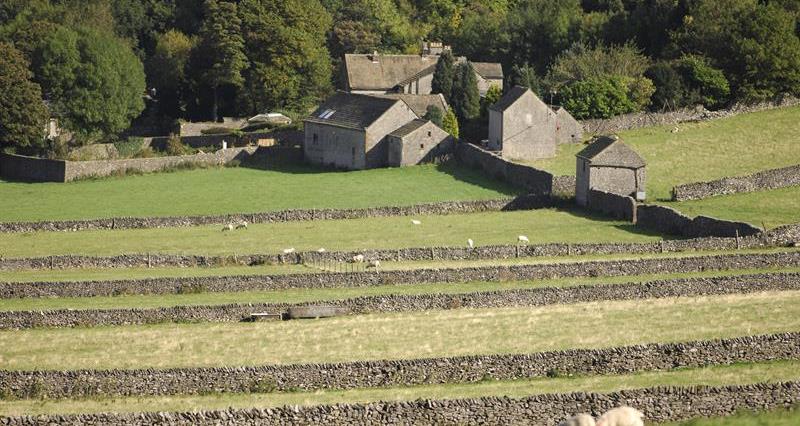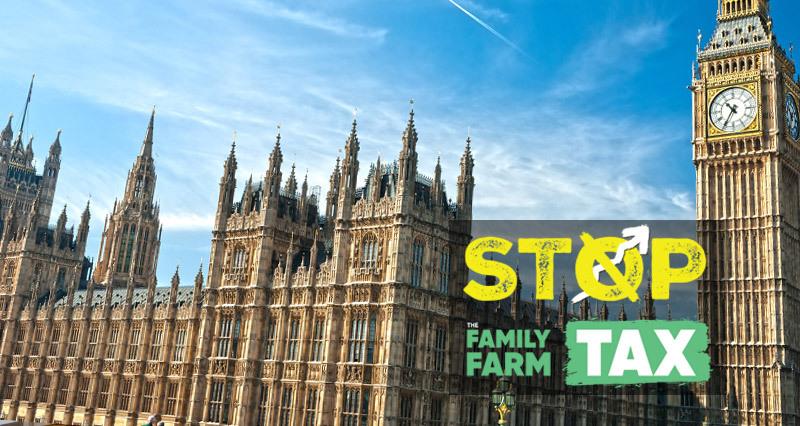Summary
�ʼһ���opposes the IHT (inheritance tax) changes announced in the Autumn 2024 Budget, which will cause significant hardship to family farms, stifle investment, and put our food security at risk. We are asking the government to halt implementation of the proposals and consult fully with the industry on the impact of the changes.
In the spirit of constructive engagement, the NFU is proposing an alternative policy option for reforming IHT reliefs.
In particular, we are seeking a solution that:
- Meets the government’s aims of raising revenue.
- Avoids penalising elderly farm owners, breaking up family farms, and stifling investment in farm businesses.
- Takes away the incentive to use APR and BPR (agricultural property relief and business property relief) solely as a way of avoiding tax.
We envisage the best way of meeting these aims is by way of a “clawback”, where IHT is only applied to qualifying assets (those currently eligible for both APR and BPR) if they are disposed of within a seven-year period after death, and so tax is paid only when the finance is available to do so, in keeping with sound principles of taxation.
Applying a clawback would maintain the ongoing day-to-day operations of businesses after a death while disincentivising the use of IHT reliefs as a tax avoidance measure.
Importantly, it would still allow the Exchequer to raise the revenue it needs.
Such clawback mechanisms are used in many other European countries.
Background
In the Autumn Budget, the Chancellor announced that full APR from inheritance tax would cease from April 2026.
From that date, full relief would apply up to £1 million with 50% relief thereafter, for both APR and BPR combined.
The Budget stated that the £1 million threshold is “to help protect family businesses and farms”. However, the industry believes the proportion of genuine commercial family farms affected will be considerable, with NFU modelling estimating that over three quarters of working farms likely to fall above the £1m threshold.
�ʼһ���understands that the government’s decision to reform IHT reliefs was primarily driven by the need to raise revenue and address the challenging fiscal position the UK finds itself in.
However, the government should recognise not only the very real personal hardship this policy is likely to cause, but also the existing rationale for IHT reliefs such as APR and BPR, which is to prevent the economic harm from the sale or break up of businesses or farms to finance IHT payments.
�ʼһ���and many other farming groups, rural and business organisations, professional experts and the wider food chain have all pointed out the numerous, highly damaging shortcomings of this policy.
Those shortcomings are not rehearsed in detail here, but include:
- stopping investment
- reducing farm profitability
- reducing the land made available for tenancies
- undermining domestic food production and our food security, and
- ending multi-generational family farms.
Not to mention, the emotional stress that such a policy is placing on farmers and growers.
Alternative approach – a ‘clawback’
�ʼһ���is proposing the government introduces an alternative approach to APR and BPR reform, which we describe as a “clawback”, and which allows 100% relief on qualifying assets, but charges IHT on all those assets if subsequently sold by the beneficiary within a suggested timeframe of seven years.
The revenue this approach will raise for government will depend on the rate of IHT applied to qualifying assets on disposal, and the amount of any tax-free threshold.
This approach will significantly reduce the number of businesses and farms from being broken up on the death of an owner, especially where there is a desire, as in the vast majority of cases, for the business to continue operating.
This is important as there can be widespread economic impacts from the breakup of a business, which are likely to be detrimental to the government’s ambitions for economic growth, especially in rural areas.
This approach also disincentivises the purchasing of agricultural land simply as a way of minimising IHT liabilities.
For this reason, clawback mechanisms are used widely across other competitor European countries and typically apply to farmland, buildings, machinery, livestock, and sometimes shares in family-owned agricultural businesses.
Details of the clawback option
-
No initial charge on death for assets qualifying for APR, BPR or both.
-
Full clawback of relief on a sale (or partial relief on partial sale) of the qualifying business or assets within a period of seven years (unless the qualifying asset is replaced with another qualifying asset).
-
Full or partial clawback where the business or assets cease to be used for a purpose which qualified for either APR or BPR within a period of seven years (again, unless the qualifying asset is replaced with another qualifying asset).
-
The level of government revenues will depend on any tax-free threshold, the rate of IHT charged, and the potential to taper the clawback within the 7-year period.
Impact on HMT revenue
Initial NFU modelling has shown that between £422 million to £686m in revenue could be raised by HM Treasury, with a central estimate of £554m in revenue, 7% more than HMT estimates its current proposal will raise.
We intend to do further modelling of various scenarios relating to the clawback and are urging the Treasury to allow us to share and discuss our workings.
While we believe that the clawback option addresses these specific concerns, we remain open to constructive and positive engagement and discussion of all and any alternative proposals.
The bottom line is that it is vital that government engages with the farming sector, small business groups and other experts to examine the policy options available to avoid the terrible consequences of the current policy.



